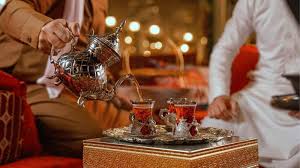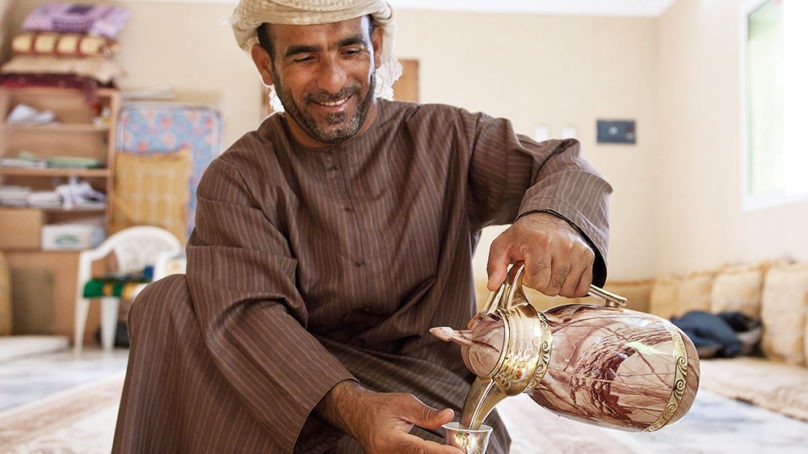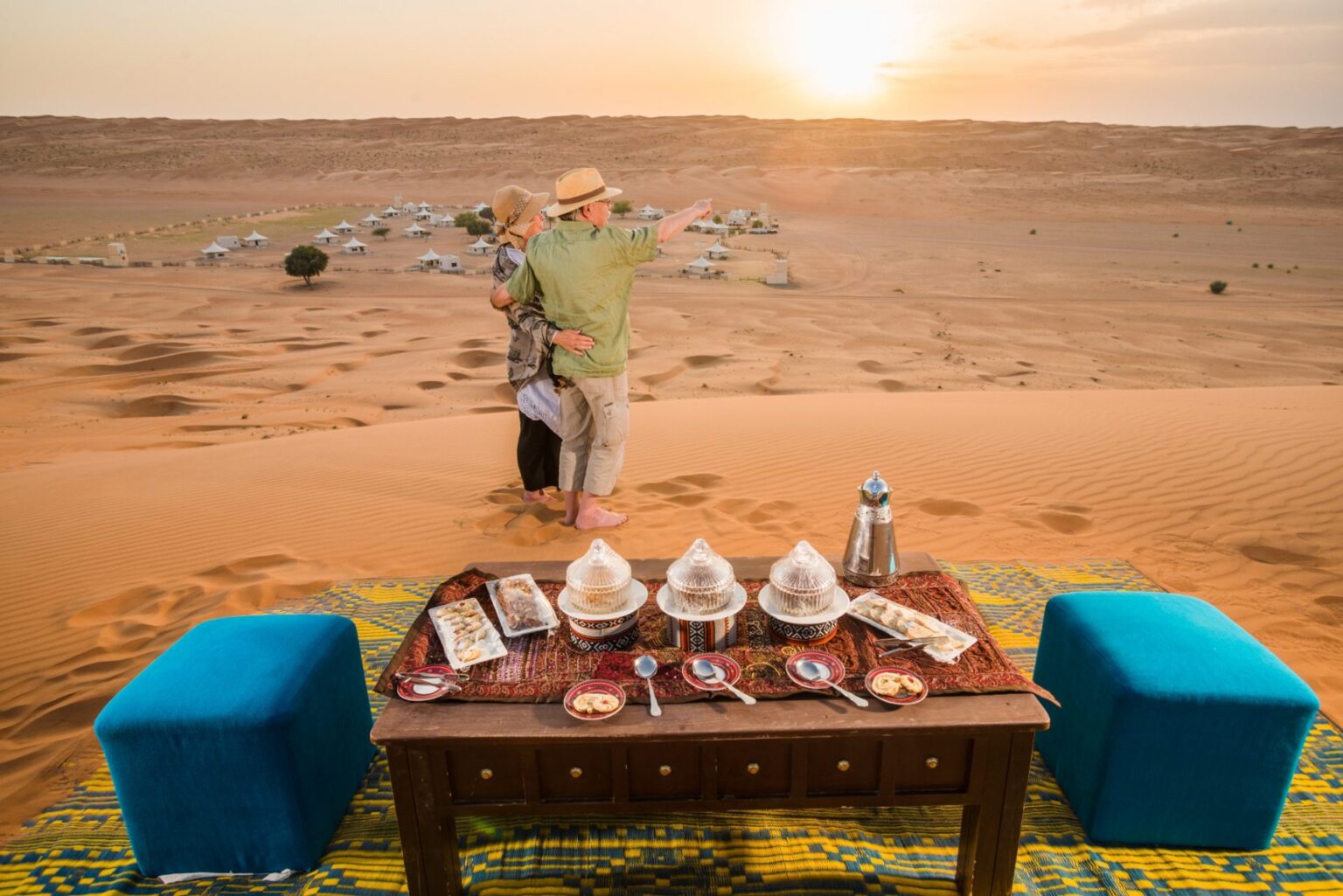The Timeless Warmth That Defines Omani Hospitality,Oman is a land where tradition and modernity blend seamlessly, where mountains meet the sea, and where every guest is treated not as a visitor but as a part of the family. The country’s reputation for unmatched hospitality has been known for centuries rooted in its culture, faith, and way of life. What makes Omani hospitality truly special is not only the kindness of its people but also the deep cultural and emotional significance attached to welcoming others. Whether you are a first-time visitor or a returning traveler, Oman’s hospitality always feels heartfelt, timeless, and genuine.
From offering coffee to inviting strangers into their homes, Omanis have preserved a warm and graceful approach that leaves a lasting mark on anyone who experiences it.
Let’s explore the many beautiful layers that make Omani hospitality stand out in the modern world.
The Spirit of Generosity in Omani Culture
Generosity is not a performance in Oman it is a natural expression of respect and goodwill. Omanis believe that welcoming guests is a sacred duty, deeply inspired by cultural and religious values. It is common for visitors to be greeted with a smile and an immediate offer of dates and traditional Omani coffee, known as “kahwa.” This simple yet profound gesture reflects the heart of Omani generosity: genuine care for others.
Every home in Oman is a reflection of this spirit. Even in rural areas or small villages, people go out of their way to ensure that a guest feels comfortable, well-fed, and respected. Sharing food and stories is not just an act of kindness it’s an unspoken rule that defines Omani life. Visitors often describe how they entered as strangers and left feeling like part of a family, a feeling few places in the world can replicate.
Omani Coffee and Dates: A Symbol of Welcome
Coffee and dates are central to Omani hospitality. Serving them is not merely a routine it’s a deeply symbolic act. The moment you step into an Omani home, you will likely be offered kahwa, a lightly spiced coffee infused with cardamom, and a bowl of fresh or dried dates.
The host serves the coffee in small cups, filling them only halfway, a sign of humility and grace. The guest may drink three cups, as custom dictates, before politely signaling they’ve had enough. This tradition goes beyond refreshment] it represents trust, honor, and connection.
Dates, on the other hand, represent sweetness and sustenance. They are an essential part of Omani hospitality, symbolizing the host’s desire to nourish both body and soul. Together, coffee and dates create an experience that perfectly captures Omani warmth: elegant, generous, and timeless.
Welcoming Strangers Like Family
One of the most remarkable aspects of Omani hospitality is the way strangers are treated as family. Travelers recount countless stories of being invited into homes by locals who insisted they share a meal or stay the night, even without prior acquaintance.
In Oman, it’s not uncommon for people to stop their cars to help a lost traveler or offer directions with patience and a smile. This openness is not just cultural etiquette it’s a reflection of Oman’s moral foundation, where every guest is seen as a blessing. The principle of “karam” (generosity) and “diyafa” (hospitality) is deeply ingrained in Omani society, passed down through generations.
The beauty of this attitude lies in its sincerity. There’s no expectation of reward or recognition. The joy of giving and making someone feel welcome is enough.

The Majlis: The Heart of Omani Social Life
No discussion of Omani hospitality would be complete without mentioning the “majlis.” The majlis, meaning “a place of sitting,” is a central part of Omani culture. It’s a special room in a home] or sometimes a community space where people gather to talk, share stories, discuss ideas, and strengthen bonds.
Visitors to Oman may find themselves invited to a majlis, where conversations flow freely over coffee, tea, and light snacks. The atmosphere is calm and respectful, emphasizing listening as much as speaking. The majlis is not merely a physical space it represents the Omani values of respect, patience, and connection.
In modern Oman, even government offices and business meetings follow the same cultural rhythm of the majlis, showing how deeply this tradition continues to shape the nation’s character.
Respect and Kindness as Daily Values
Hospitality in Oman is not limited to special occasions it’s a way of life. Respect and kindness are practiced daily, from how Omanis greet each other to how they treat workers, travelers, and even strangers on the street.
You will often hear the word “Marhaban” (welcome) or “Ahlan wa Sahlan” (you are among family) when you arrive somewhere. These are not empty words—they carry deep sincerity. Even in markets, where bargaining is part of the experience, the interaction remains polite and friendly.
Omanis are also known for their calm, soft-spoken manner. They listen with attention and speak with humility, making every interaction peaceful and pleasant. This cultural trait has created an environment where visitors feel safe, respected, and genuinely appreciated.
Traditional Guesthouses and Desert Camps
Oman’s tourism industry has beautifully adapted its traditions of hospitality into modern experiences. In cities like Muscat and Nizwa, traditional guesthouses and boutique hotels are designed to reflect Omani culture and comfort. These accommodations often include majlis-style seating areas, traditional décor, and staff trained to offer guests the same level of warmth found in Omani homes.
In the desert, Bedouin-style camps bring visitors closer to the roots of Omani hospitality. Here, under the stars, guests enjoy authentic meals cooked over open fires and hear stories from local Bedouins who have carried these customs for centuries. These experiences are not just about luxury—they are about connection, learning, and understanding the human side of Oman.
The Bedouin Influence: Roots of Generosity
Much of Oman’s hospitality can be traced back to its Bedouin heritage. The Bedouins, traditionally nomadic desert dwellers, lived in harsh environments where cooperation and generosity were essential for survival. Sharing food, water, and shelter with travelers was not optional it was a moral duty.
This legacy continues to shape Oman’s national character today. Bedouin values of trust, generosity, and loyalty are visible in modern Omani society. Even as cities grow and technology advances, these principles remain unshaken. Omanis continue to uphold their ancestors’ tradition of making every visitor feel at home, no matter where they come from.
Food: A Celebration of Togetherness
Food plays a vital role in Omani hospitality. Meals are more than just nourishment—they are a celebration of togetherness. Dishes like shuwa (slow-cooked lamb), maqbous (spiced rice with meat), and harees (wheat porridge with meat) are prepared with care and often shared with family, friends, and guests during special occasions.
In many homes, guests are encouraged to eat first, a gesture that symbolizes honor and respect. Omani meals are typically enjoyed on large shared platters, reflecting unity and equality. Eating together is not rushed it’s an opportunity to connect, laugh, and exchange stories.
Whether in a luxury restaurant or a small village home, the emphasis remains the same: food is love, and sharing it is an act of kindness.

The Role of Religion in Omani Hospitality
Islam plays a significant role in shaping Omani hospitality. The teachings of Islam emphasize generosity, compassion, and the importance of treating guests with respect. Prophet Muhammad’s saying, “Whoever believes in Allah and the Last Day should honor his guest,” is a principle that Omanis live by wholeheartedly.
This religious foundation ensures that kindness extends beyond cultural norms] it becomes a spiritual practice. The warmth that visitors feel is not just social courtesy; it’s rooted in faith and devotion. This blend of religion and culture creates a unique atmosphere of peace and sincerity that distinguishes Oman from many other destinations.
Modern Hospitality with Traditional Roots
While Oman continues to modernize rapidly, its sense of hospitality has remained unchanged. From high-end hotels to small local cafés, the Omani touch is visible everywhere. Staff greet visitors with genuine warmth, using traditional phrases and gestures.
Even modern hospitality industries in Oman incorporate local customs, such as offering kahwa and dates at check-in or designing interiors inspired by the country’s natural and cultural beauty. This balance between tradition and progress is one of Oman’s greatest strengths. It allows the nation to move forward without losing its soul.
The Safe and Welcoming Environment for Tourists
One of the reasons visitors feel so comfortable in Oman is the country’s peaceful atmosphere. Oman is known for being one of the safest and most stable countries in the region. This sense of security enhances the hospitality experience, as tourists can explore freely and interact openly with locals.
Omanis are proud of their country and often go out of their way to help visitors understand its culture, landmarks, and traditions. Whether it’s a shopkeeper explaining the meaning of a traditional dagger (khanjar) or a taxi driver sharing stories about his village, every encounter feels personal and enriching.
Celebrations and Festivals That Unite Everyone
Festivals in Oman offer another glimpse into the nation’s generous spirit. During Eid and national celebrations, families open their homes to relatives and neighbors, offering large meals and sweets. Visitors are often invited to join, no matter their background or religion.
The Muscat Festival and Salalah Tourism Festival also showcase Omani hospitality on a grand scale, with food stalls, cultural performances, and welcoming locals eager to share their heritage. These events embody the openness that defines Omani society joy shared freely and traditions celebrated together.
Why Visitors Remember Oman Forever
Travelers often describe Oman as a place that feels like home, even if it’s their first visit. It’s not just the natural beauty or the architecture that leaves an impression it’s the people. Their smiles, their patience, and their quiet confidence create a warmth that lingers long after departure.
Oman teaches the world that true hospitality is not about luxury or perfection it’s about the heart. It’s about treating others with compassion, respect, and sincerity. Visitors leave with memories not only of landscapes and landmarks but also of friendships formed and kindness received.
Conclusion: The Heartbeat of Omani Culture
Omani hospitality is more than a tradition it’s a way of life that defines the nation’s identity. Rooted in ancient customs and guided by timeless values, it continues to flourish in the modern era. From the offering of coffee to the kindness of strangers, every gesture carries a message of peace and unity.
In a world where speed often replaces connection, Oman stands as a reminder of what truly matters: human warmth. The country’s hospitality is not something you simply observe it’s something you feel. It stays with you, long after you leave, as a gentle memory of a place where kindness still reigns.
For every traveler who visits Oman, one truth becomes clear the greatest treasure of this nation is not its deserts, forts, or seas, but the people whose hearts make it shine
Do follow Gulf Magazine on Instagram.
Also Read – Preserving Omani Heritage: The Power of Storytelling and Folklore



